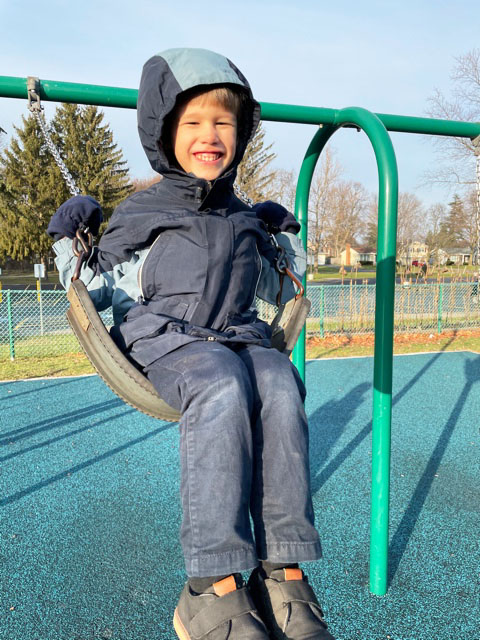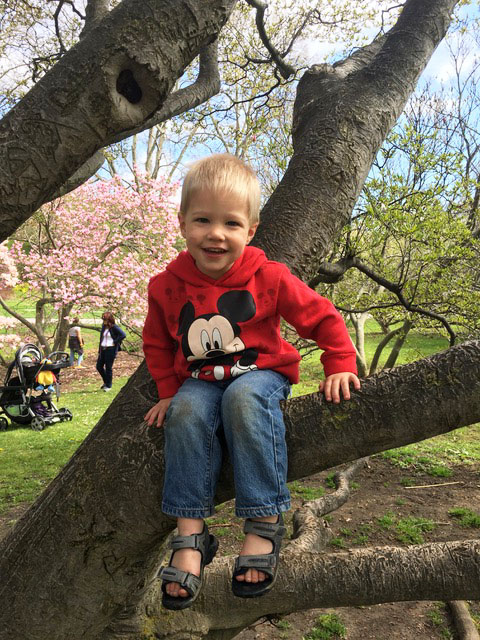Our Introduction to CCE
My husband and I learned about Classical Christian Education while in college. Having read very little philosophy in our respective public educations growing up it was an eye-opening experience to discover and discuss these things in our classes. After just two semesters of a five semester-long class on these topics, I already knew that I wanted to continue my education further, obtain a degree in philosophy, and create some kind of curriculum to teach this material to high schoolers. Imagine my delight and surprise (and relief!) to learn that such a thing already existed, and it was not just for high school students! There was a whole system and philosophy of education devoted to educating the whole person, beginning in elementary school.
We Had To Be In On This
What we initially came to learn and love about Classical education was its method of teaching. I read the paper The Lost Tools of Learning by Dorothy Sayers, and found much wisdom in her description of the Trivium, which she describes as the way God has designed our brains to function and learn throughout three distinct but overlapping stages of development. Anyone who has young children knows their ability to remember and parrot everything they hear. The Grammar Stage harnesses that natural inclination to teach the children the basics of all sorts of subjects: phonics, arithmetic, science, history, etc. As they get older, they develop and move into the Logic Stage. Typically considered to be later elementary through middle school grades, here the child learns why things are the way that they are, and how to use these facts and tools to make larger discoveries. Anyone who has had the pleasure of arguing with a seventh grader as to why the rules are what they are is familiar with their inclination towards a logical understanding of the world. Classical education harnesses that and teaches them to think critically. Finally, the Rhetoric Stage: In high school, the child is able to use the facts and logic they obtained in the earlier stages, critically making observations about the world, coming to their own conclusions, and winsomely conveying and advocating for their points.
The second thing I’ve come to appreciate about Classical education is its enthusiasm for the eternal learner. Many of us who are parents now grew up in a culture, if not also a home, pushing us towards higher education. I remember in my public school setting entering middle school and being asked to choose the college-track electives or the trade school electives. In other words, I was being asked to make decisions about classes that would affect the rest of my life at age eleven! My husband had a similar experience, electing to go to a magnet school for the arts in high school. From there, he bounced around between several different majors and colleges before settling on his Biblical Studies major at Eternity Bible College.
We are all for higher education (my husband is currently pursuing a masters degree, a requirement for his job!), but we are not only for higher education. Instead, we are for people who are able to do whatever they are called to do as a career, and have the ability to change careers as necessary, because they can teach themselves any myriad of subjects. We are for people who learn for pleasure because they delight in God’s creation and want to know more about the world as He made it.
Loving God Through Education
Our greatest goal is that our children honor, worship, and love God for their whole lives in every aspect. When it comes to vocation, should they choose to be engineers, doctors, retail employees, plumbers, or stay home with their families, we know that our children will be able to honor and serve God with their minds. We know that they will be able to stand firm upon the conclusions that they’ve made about the world because they have considered them critically, knowing the facts. They will be truly open-minded, because they will be able to entertain differing thoughts and philosophies without being tossed to and fro by the modern fads and thoughts of their time. They will be humble in their knowledge, because they will learn early on in life that they do not and cannot know everything about anything. Classical education will teach them how to do this.
What we have come to discover is that Classical education is truly education for everyone. Initially, it seems elite, perhaps because it is new to many of us, and the schools that classify themselves as Classical can be quite scarce. The reality is that the Classical pedagogy takes into consideration the whole person and the root of what education actually is. Classical education starts with the belief that there is absolute Truth, and strives towards that end even as it knows that we can never truly know it all. It raises up lifelong learners who can engage the culture and change it, whether that be in their own home, communities, or the world at large.



